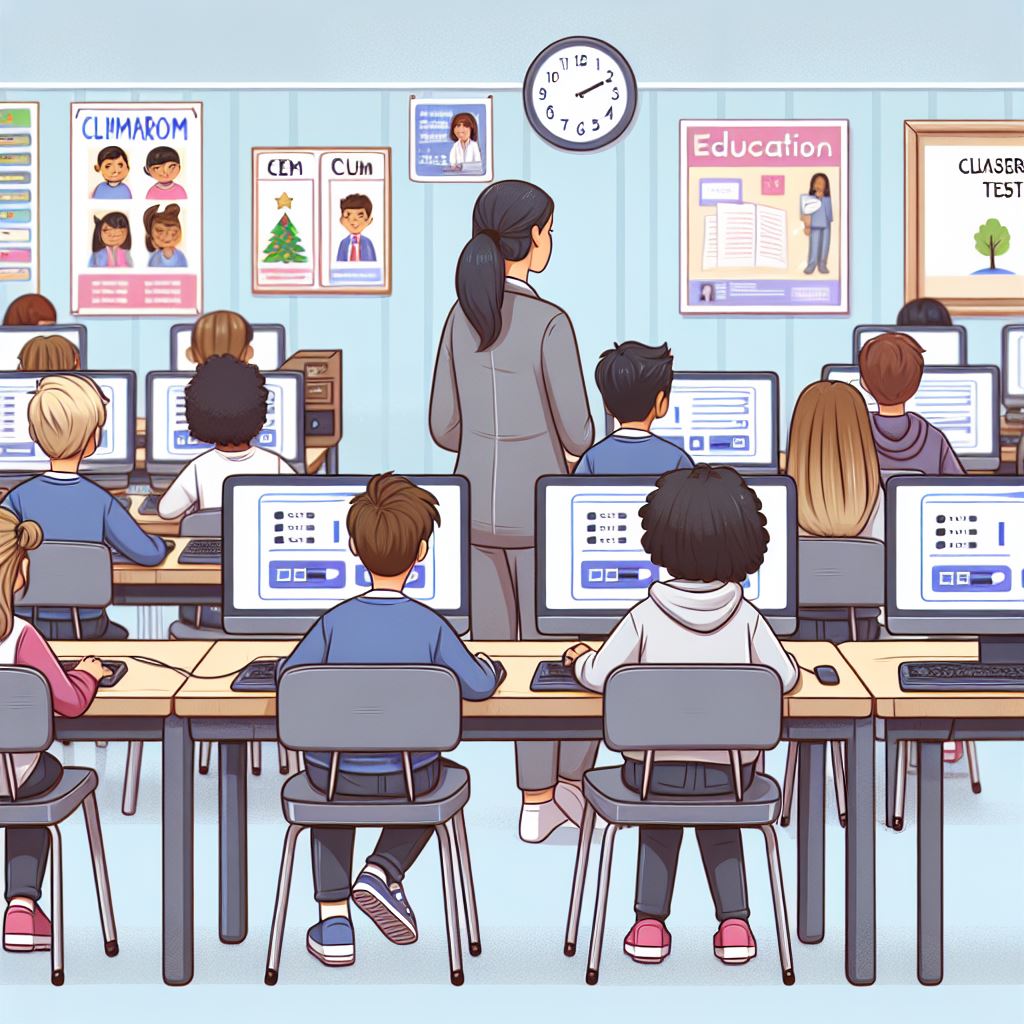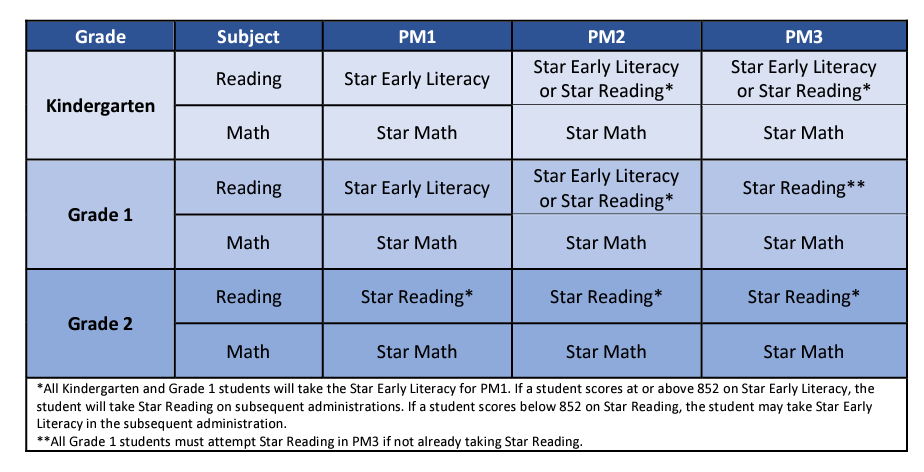Assessment Information
for
Kindergarten Through 2nd Grade

Students in Kindergarten through 2nd grade will participate in the STAR Reading and Math Assessments three times per year. The first progress monitoring window (PM1) will occur within the first 30 days of school, the second (PM2) will occur in the middle of the school year, and the third (PM3) will occur at the end of the school year.
Dates and further testing information will be provided by your child's teacher and/or Mrs. Gee, the Brevard Virtual School testing coordinator.
STAR Assessments are completed on campus at the Clearlake Education Center in Cocoa.

Assessment Timing

Sample Test Materials
Sample test materials (STMs) contain sample test items aligned to the B.E.S.T. Standards and allow parents/guardians and students to become familiar with the various item types that will be encountered on the assessments.
Please note the following:
The K–2 practice resources are booklets that show examples of Star test items.
Students must successfully answer practice questions at the beginning of each session before they can enter the actual test. The purpose of these practice items is to familiarize students with the testing platform and marking responses to test items.
FL DOE Student Testing Policies
Please review the following state testing policies with your student before testing:
Electronic Devices—Students are not permitted to have any electronic devices, including, but not limited to, cell phones, smartphones, and smartwatches, at any time during testing or during breaks (e.g., restroom), even if the devices are turned off, or students do not use them. If your student is found with an electronic device, his or her test will be invalidated.
Discussing Test Content after Testing—The last portion of the testing rules read to students before they sign below the Testing Rules Acknowledgment states: “Because the content of all statewide assessments is secure, you may not discuss or reveal details about the test content (including test items, passages, and prompts) after the test. This includes any type of electronic communication, such as texting, emailing, or posting online, for example, on Facebook, Twitter, Snapchat, or Instagram.” Please make sure your student understands that “discussing” test content includes any kind of electronic communication, such as texting, emailing, posting to social media, or sharing online. While students may not share information about secure test content after testing, this policy is not intended to prevent students from discussing their testing experiences with their parents/families.
Working Independently—Students are responsible for doing their own work during the test and for protecting their answers from being seen by others. If students are caught cheating during testing, their tests will be invalidated. In addition, the Florida Department of Education (FDOE) employs Caveon Test Security to analyze student test results to detect unusually similar answer patterns. Student tests within a school that are found to have remarkably similar answer patterns will be invalidated.
Leaving Campus—If your student leaves campus before completing a test session (e.g., for lunch, an appointment, illness), he or she will not be allowed to return to that test session. If your student does not feel well on the day of testing, it may be best for him or her to wait and be tested on a make-up day. Please remember not to schedule appointments on testing days.
